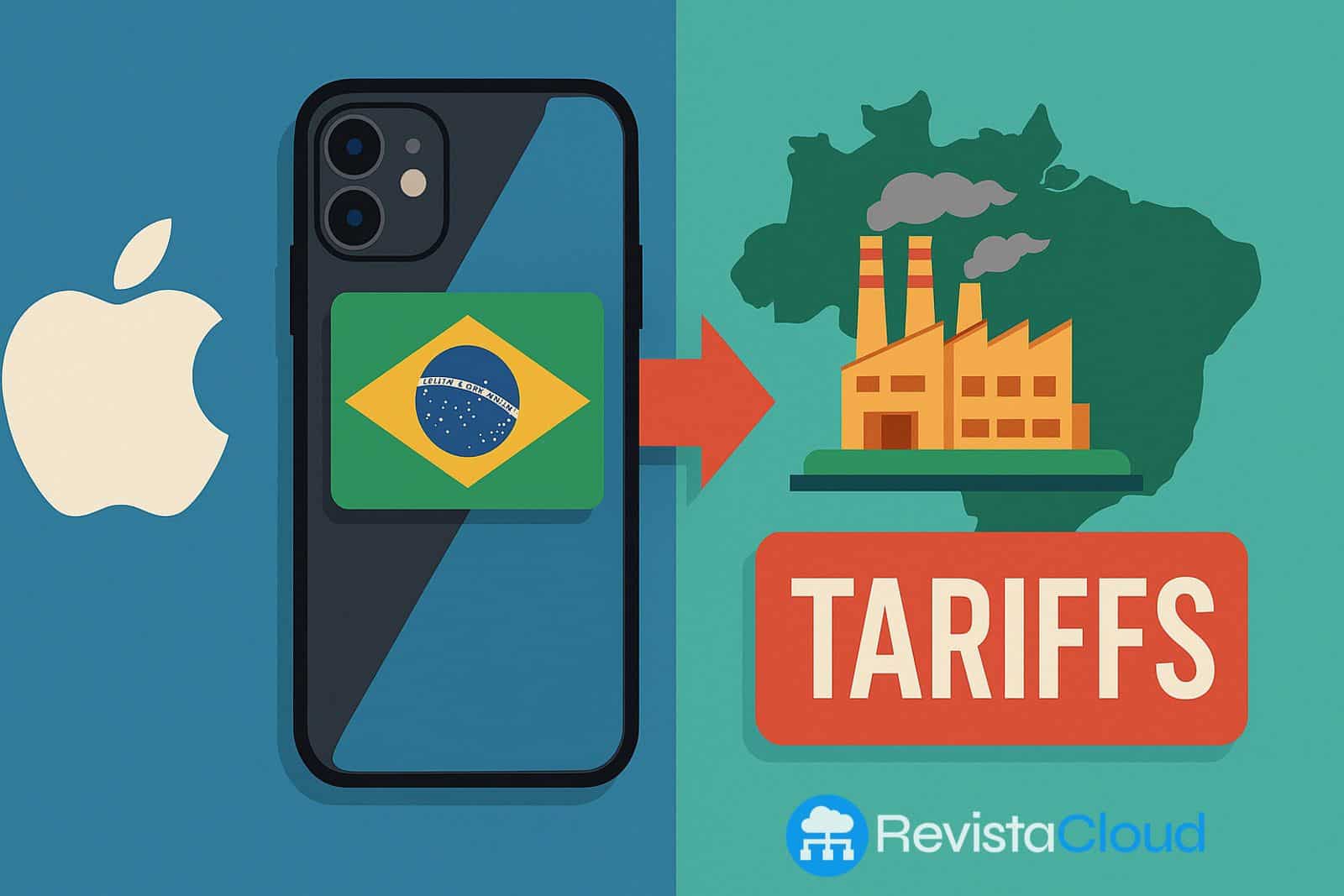The company seeks to reduce the impact of the new tariffs imposed by the U.S. administration on products imported from China and India.
Apple is considering expanding iPhone production in Brazil as a direct response to the new trade tariffs announced by the U.S. government. Sources consulted by the Brazilian magazine Exame reveal that the California-based company is already looking into ways to increase its assembly capacity for devices in the South American country, which would allow it to minimize the tax costs associated with imports from China and India.
A strategy to bypass Trump’s tariffs
President Donald Trump announced this week a new series of tariffs affecting imported technology products. These taxes represent a significant blow to manufacturers like Apple, whose supply chains heavily rely on China. Specifically, products imported from that country will be subject to 34% taxes, while those from India will face a 26% tax. In contrast, tariffs for Brazilian products will be set at 10%.
In light of this scenario, Apple sees Brazil as a viable alternative to reduce its exposure to these costs. The company has maintained an industrial presence in the country since 2011 when it partnered with Foxconn to establish an assembly plant in the state of São Paulo. So far, this plant has mainly focused on producing entry-level iPhone models to supply the local market.
However, Exame reports that Apple is looking to expand this operation. “The possibility of increasing production in Brazil began to be studied last year, with improvements in machinery and industrial processes,” the publication states.
The iPhone 16 will also be assembled on Brazilian soil
According to recent documents, Brazil’s National Telecommunications Agency (Anatel) has granted Apple and Foxconn the necessary certification to assemble the iPhone 16 in the country. Previous models like the iPhone 13, iPhone 14, and iPhone 15 have already been produced locally. For the first time, there are plans to manufacture Pro versions of the iPhone 16 line in Brazil as well.
The goal is not only to meet Brazilian domestic demand but also to turn the country into an export hub for the United States. By doing so, Apple would significantly reduce the impact of the new taxes by benefiting from the lower tariff burden applicable to Brazil.
Stock market drop and concern in the tech sector
The news comes at a sensitive time for the Cupertino firm. Since the announcement of the new tariffs, Apple’s shares have fallen by more than 10%, and its market capitalization has lost over $300 billion. Other major U.S. tech companies, such as Nvidia, have suffered similar losses.
The domino effect is already being felt: Nintendo has postponed the launch of the Switch 2 in the U.S. market, citing uncertainty over the tariff environment.
Brazil as a new key in the global supply chain
With a lower tax burden than other Asian markets, Brazil could gain importance in the global network of technological device assembly. Apple’s push to strengthen its production in the South American country supports this hypothesis and highlights the strategy shift by tech giants in response to the new geopolitical reality.
If these plans are confirmed, the Foxconn plant in Brazil would become one of the few outside Asia capable of producing advanced iPhone models, marking a turning point in Apple’s industrial strategy.
Meanwhile, analysts and governments are closely monitoring sector movements, which are being forced to adapt to a new era of trade tensions, supply chain diversification, and increasing regionalization of technological production.
Source: 9to5mac

